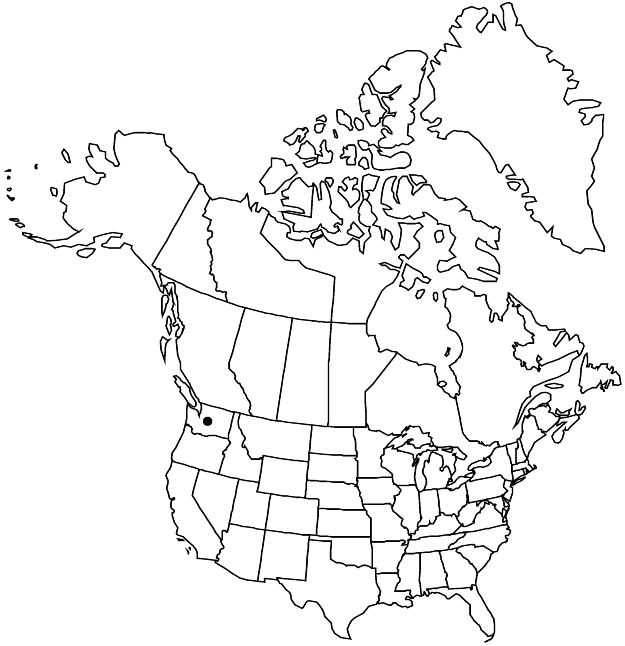Silene seelyi
Torreya 33: 70. 1933.
Plants perennial; taproot slender; caudex with much-branched crown, finely pubescent throughout with mainly glandular hairs. Stems numerous, decumbent to ascending, branched, tufted, leafy, slender, 5–30 cm. Leaves 2 per node, sessile or nearly so, blade reticulate-veined, lanceolate to ovate-lanceolate, thin, 0.8–2 cm × 3–8 mm, broadest proximally, base rounded, apex acute. Inflorescences cymose, open, compound, leafy, single flowers borne terminally and in axils of distal leaves; bracteoles, when present, 2. Pedicels straight, slender, 1/2–3 times longer than calyx. Flowers: calyx green, obscurely 10-veined, narrowly campanulate, in fruit 6–9 × 3–4 mm, herbaceous, pubescent, veins without conspicuous pale commissures; lobes triangular, 2–3 mm; corolla dark red, sometimes white, clawed, claw slightly longer than calyx, limb deeply 2-lobed, 2–3 mm, appendages 2, very small; stamens exserted; styles 3, exserted. Capsules ellipsoid, included in calyx, opening by 6 teeth; carpophore ca. 1.5 mm. Seeds brown, not winged, broadly reniform, flattened, ca. 0.8 mm, reticulate. 2n = 24.
Phenology: Flowering summer.
Habitat: Crevices and ledges on granite and basalt cliffs
Elevation: 800-1800 m
Discussion
Of conservation concern.
Silene seelyi is confined to the Wenatchee Mountains. It closely related to S. menziesii, but is distinguished by its usually dark red flowers and broadly lanceolate leaves.
Silene seelyi is in the Center for Plant Conservation’s National Collection of Endangered Plants.
Selected References
None.
